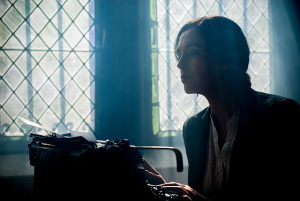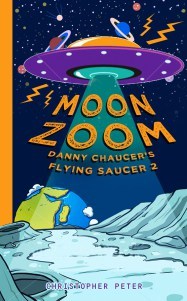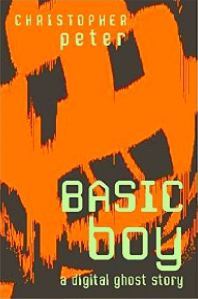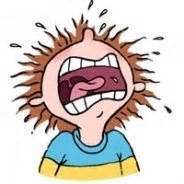Christopher Peter's Blog, page 3
July 30, 2016
How to Handle Writer Jealousy
Good, helpful post. I have to admit to feeling jealous at times. Not so much of more successful and talented writers than myself, mind you. For example, I’m envious of Frances Hardinge for winning the Costa Prize for The Lie Tree last year – but having read the book, I also have to admit she’s a seriously good writer, the kind of author in fact that I need to read more of to help improve my own craft, and the book fully deserves the accolades and attendant sales it has earnt.
No, I’m more jealous of the ‘celebrity’ authors, those people famous for something completely different but who decided to write a book (often a children’s book) for the hell of it, and of course land a publishing contract right away simply because of who they are, not because – OK I’ll stop there because I could rant a lot longer but I won’t. Suffice to say – what can I learn from this type of ‘celebrity’ author?
The chances are they aren’t any more talented at writing than I am, and most often probably less so. (I hope that doesn’t sound arrogant, but we all know how much time and effort it takes to become a better writer, and most of these celebrities simply haven’t put in that hard graft – they don’t need to.) My conclusion is that I simply have to try to ignore them. They are a fact of the publishing world and probably always will be., and it doesn’t affect my own chances or goals in the slightest – unless I let it by allowing it to discourage me.
It also depends how I measure ‘success’. Is it sales and money, or is it the pleasure and satisfaction that comes from writing and doing the best you can?
by Kate M. Colby
We’ve all been there.
Your classmate’s story is praised in workshop, while yours is torn apart.
“Poorly written” romances dominate best-seller lists, while your science fiction novel languishes in Amazon’s 2,000,000 ranking spot.
The author you follow on Instagram posts their third cover reveal this year, while you struggle to finish your manuscript.
View original post 1,170 more words


July 5, 2016
Full Moons Can’t Rise at Midnight
Great article. The Bad Astronomy link is especially helpful if you happen to be writing a sci-fi series for kids …
By Marianne Knowles
I was reading a YA romance novel set on the coast of Maine. The teen girl woke up at 5am on July 4 to sneak out and meet the guy at a dock. She described the diamond-like stars sparkling in an inky-dark sky.
BANG-THUNK-KLUNK (Sounds of a reader tripping over a detail.)
 This is how the character described 5am in Maine on July 4.
This is how the character described 5am in Maine on July 4.
 This is what 5am in Maine on July 4 really looks like.
This is what 5am in Maine on July 4 really looks like.
Clearly the writer or the editor or both had never been awake at 5 o’clock on a July morning on the coast of Maine. But that’s no excuse for an error that jolts a reader out of the story, especially when astronomy mistakes are SO EASY TO AVOID.
And this isn’t the only astronomy mistake I’ve read in the past couple of years. Here are a few more:[1]
The full…
View original post 696 more words


June 5, 2016
Mingling at the Twitter Cocktail
By Wendy Leiserson Josh Funk, author of Lady Pancake and Sir French Toast, knows more about being an author than how to cook up a great picture book. Josh generously shared his knowledge of the soc…
Source: Mingling at the Twitter Cocktail


April 13, 2016
You Are Writing the Future
An inspiriting post for writers, especially of children’s fiction.
By Marianne Knowles
Tomorrow’s do-ers are reading kidlit today. Keep writing!
You may have missed it, but this past Friday a rocket returned to Earth and landed on a floating platform bobbing on the waves in the Atlantic Ocean. And this time, it didn’t explode.
The event was a testament to the power of imagination. The Falcon rocket (named for Star Wars’ Millenium Falcon) had just launched the Dragon capsule (named for Puff the Magic Dragon) to rendezvous with the International Space Station. It landed on the barge Of Course I Still Love You (named for a ship in the science fiction novel The Player of Games).
The founder of SpaceX, Elon Musk, loves to read. He spent much of his childhood reading. He continually vacuumed up fiction, science fiction, nonfiction, comic books and, when he ran out of books, the Encyclopedia Britannica…
View original post 656 more words


Mapping Character
Excellent post on writing and developing convincing characters.
By Almitra Clay
I’ve been on a personal journey for the past few months, doing something that I’ve needed to do for a long time: therapy. Therapy includes a whole lot of introspection. It’s a journey of self-discovery that involves picking apart my own life to understand what was broken, as well as what makes me tick generally. Why do I do things the way that I do them? In the process, I’ve discovered that there is a great deal to be learned about creating realistic characters by looking into yourself, whether you’re broken or not.
Try this exercise: make a list of your own most extreme and noteworthy character traits. Be as honest as possible. Don’t worry, you aren’t required to share. Here’s my short list:
I have successfully fooled people into thinking that I am outgoing.
Left turns scare me. Social situations scare me. Making phone calls scares…
View original post 869 more words


January 28, 2016
On Car Repair and Rewrites
This is one of the best analogies of editing / re-writing that I’ve seen. It perfectly captures the hard work that has to go into writing a novel, the necessity of it, the pain but also (hopefully) the joy of the final result … eventually.
By Almitra Clay
As I have rewritten the manuscript of my novel, I’ve had a mental picture of myself: I’m a mechanic leaning so deep into a car’s innards that just my legs stick out. I’m pounding on something that probably shouldn’t be hit with a wrench. Every so often I yank out some part gross with rust and grease, which I toss over my shoulder onto the lawn.
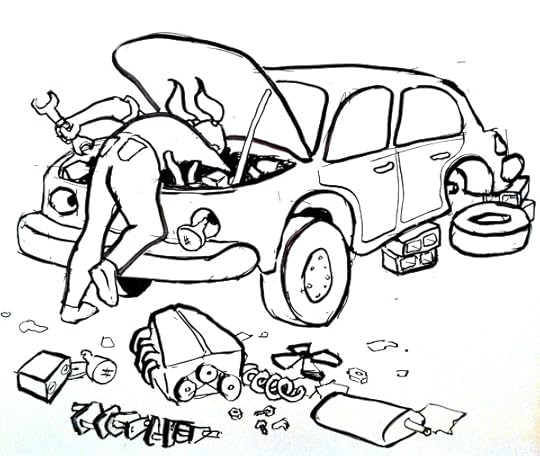 Car repair, novel repair, it’s all the same. Right?
Car repair, novel repair, it’s all the same. Right?
There are quite a lot of those parts lying around. Discarded chapters. Plot arcs. Characters.
So yeah, that first car was my NaNoWriMo draft. It was my first novel ever. I was ever so proud that I’d made a proper car-shaped thing that did what a car is supposed to do. It rolled! The horn honked! Never mind the duct tape, or the missing exhaust system, or that the whole thing would…
View original post 832 more words


January 13, 2016
Amber Glasses: Write Late, Sleep Well
Interesting article! I may try these, especially after my next late-night writing session. Generally I sleep OK but not quite as well as I used to, and that may partly be because I spend so much time staring at screens of one sort or another now. Also might help with my upcoming trip to India – got terrible jet-lag last time …
By Marianne Knowles
Call it writer’s insomnia: You’re on a roll, writing for hours, late into the night. Finally, exhausted but accomplished, you save your work, back it up, switch off the computer, and fall into bed.
And then you stare at the darkness for an hour or more before finally nodding off. It’s so frustrating! You’re exhausted, so why can’t you go to sleep? Is your story too exciting? Are your characters too insistent?
Maybe. Or maybe it’s the blue light shining out of your computer screen and straight into your eyes.
Several recent scientific studies have demonstrated a connection between blue artificial light and insomnia. Early forms of artificial light — candles, campfires, and oil lamps — emit wavelengths only in the red, orange, and yellow parts of the spectrum. Sunlight contains the full range of visible wavelengths, from the longest (red) through the shortest (violet). Until…
View original post 675 more words


December 3, 2015
Moon Zoom: Danny Chaucer’s Flying Saucer #2
The saucer’s back – and it’s about to whisk Danny and Natalie off on another awesome adventure!
BOB – the super-computer with a personality as big as its brain – needs more Moon Zoom, the mineral that powers the saucer’s anti-grav drive.
The only problem is, it’s locked away in the top-secret Ganymede Institute. To get at it, Danny and his friend Nat will have to deal with flying scooters, obnoxious classmates and a big bad missile. Not to mention the sinister Captain Frost in hot pursuit.
And there’s only one place to get even more Moon Zoom (no prizes for guessing where). But when the saucer’s crew find themselves stranded, Danny realises that only an incredible act of bravery can save them …
Kindle edition now available on Amazon.com and Amazon.co.uk – and FREE this weekend (5/6 December). Reviews / comments very welcome.


October 17, 2015
BASIC Boy – Free from Amazon this weekend
BASIC Boy: A Digital Ghost Story is free to download from Amazon this weekend (17/18 October). It’s been a while since I’ve run one of these promotions, and with Halloween fast approaching it seemed like a good time. It’s a ghost story with a difference – haunted computers are rather thin on the ground …


October 5, 2015
Horrid Henry: An apology
Forgive me, o gods of literacy, for I have sinned. This is my confession.
About three years ago, my (then) eight-year-old son began getting into Horrid Henry. I don’t know how much the HH phenomenon is known outside the UK, so for the benefit of the blissfully ignorant: Horrid Henry features in a series of children’s books which have, by any measure, been a major publishing success story. They have been bestsellers, and have subsequently adapted into a TV series and a movie.
The books belong to a genre we might call gross-lit. The eponymous Henry is, to put it mildly, an anti-hero. He gets into trouble all the time, shows less than zero respect for his parents, teachers or any other adults, and hates his impeccably behaved brother Perfect Peter. He farts, belches, schemes and whines with total abandon. He is, in short, a grown-up’s nightmare.
Don’t get me wrong – I can see Henry’s attraction, especially to his peer group. He’s lively, rebellious and funny. And Perfect Peter is rather irritating. But I really didn’t like the books. For one thing, I didn’t think they were especially well written or original. The naughty, rebellious schoolboy character is nothing new – think Dennis the Menace or Just William, to give just two examples – and in my opinion he’s been portrayed with more wit and style before. The fact that all the child characters are always referred to by their alliterative nicknames – as well as Horrid Henry and Perfect Peter, there is also Moody Margaret, Vomiting Vera and many more – was a joke that quickly wore thin for me.
And Henry himself, I just found unbearably annoying. He’s staggeringly selfish He’s the sort of child who sucks up a disproportionate amount of effort and attention, to the detriment of the quieter, better behaved kids around them. He was certainly not anything like my idea of a good role model, much less a hero.
What’s worse is – and this might make me sound incredibly old-fashioned – there’s little sign of a moral compass in those books. There are too often no apparent consequences to Henry’s behaviour. He’ll do something selfish and bad, upsetting the people around him – and just get away with it.
So what did I do? (This is the confession part.) One day, I took all my son’s Horrid Henry books away. I didn’t think they were a good influence, or good literature. There are better books out there, I said; read those, not these.
Right. Rant over. I am of course conscious that I am not the target audience for these books. I am also aware that the average nine-year-old boy really does find farting and belching quite funny. Horrid Henry is obviously and unashamedly aimed at children of a certain age, and boys in particular. The books are also carefully and skilfully written to be easily readable for their age group, a quality which, as I reflected on in my last post, is both important and something that doesn’t happen by accident.
Three years on from my Horrid Henry book burning spree (OK, that’s dramatic license: I didn’t burn them, I just gave them to a charity shop), I know better now. My son has never been a great reader. He often takes scant interest in the written word. He doesn’t find many books he really likes. When he does, it tends to be non-fiction rather than stories – which is fine, as long as he reads, but I wish he loved fiction the way I always have. I have tried to introduce so many new books to him, with distinctly mixed results.
But he liked Horrid Henry books. So why on earth did I take them from him? What sort of fool was I? OK, I didn’t much like them. I still don’t. But they aren’t that bad – and they’re books. And if he reads them, he’ll go on to read other, different things. I can still introduce him to other options, without taking away the things he’s already enjoying.
Today I read an article that reminds us of the obvious: if children find books they love to read, then – guess what? – they’ll read more. And more; with all the intellectual, emotional and educational benefits that we know go along with that.
Now my son is allowed to read Horrid Henry again, along with pretty much anything else he wants to. It’s far more important that he learns to associate reading with pleasure and freedom, rather than only reading what I personally (and subjectively) consider to be good literature. In any case, he’s far, far more likely to come across unsuitable or harmful material on TV, or especially online, than he is within the pages of a children’s book.
So welcome back Horrid Henry, (almost) all is forgiven. Thank you for showing my son that reading can be fun after all. Just … just try to behave a bit better from now on, will you? Set a more positive example? No? …. Oh well. As you were, then.




